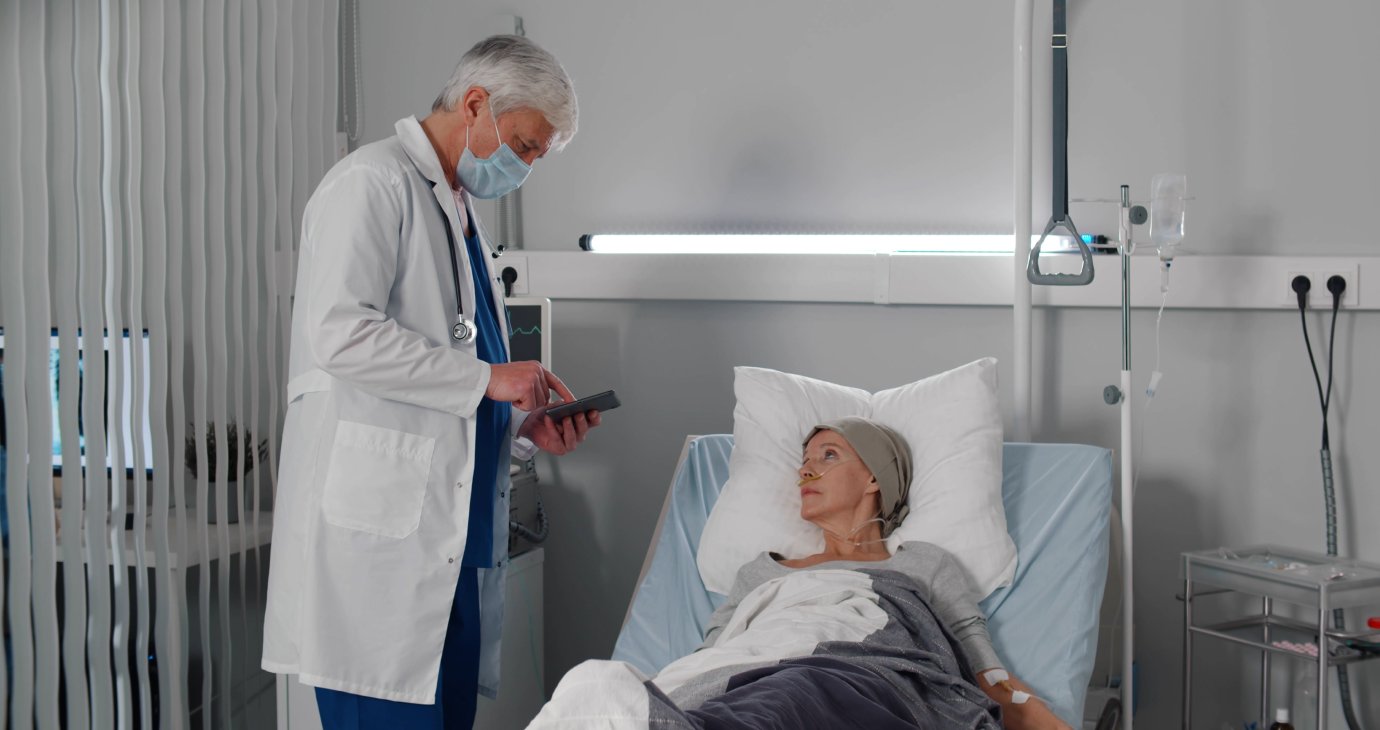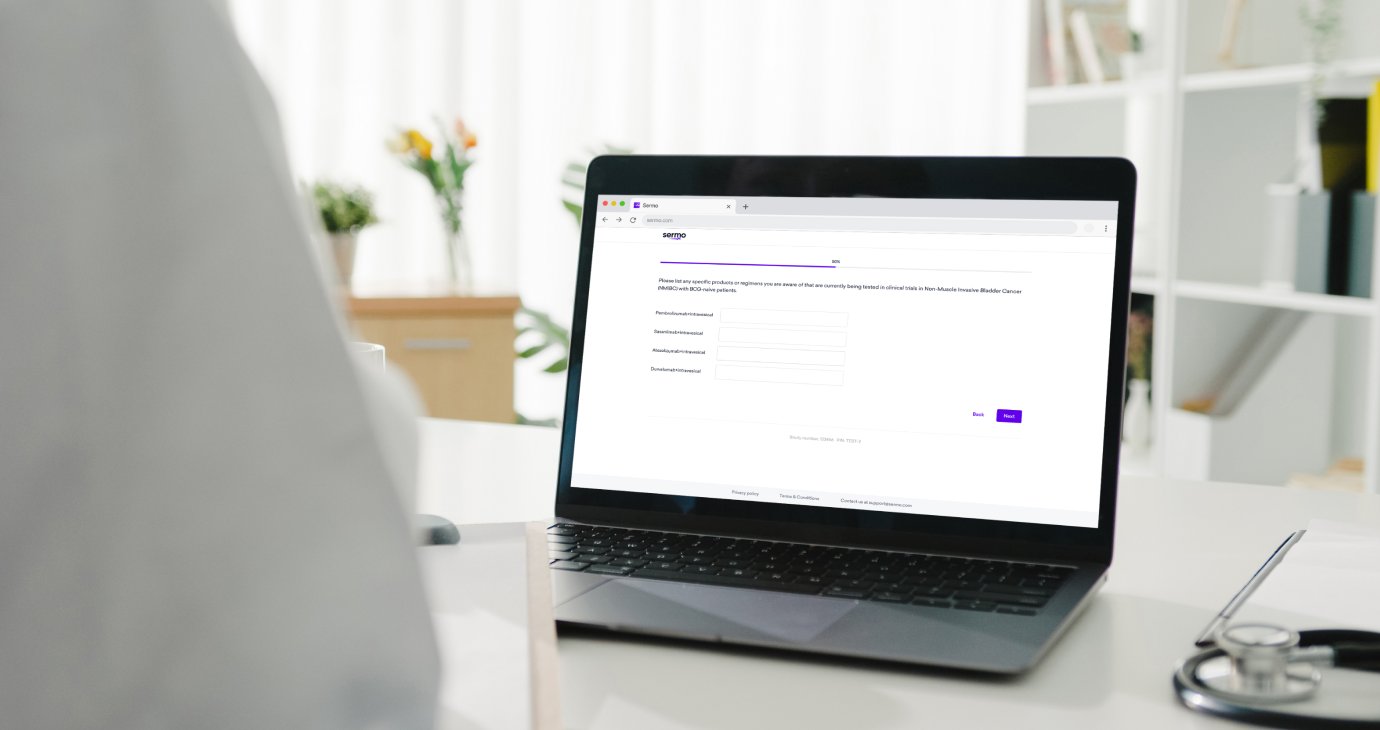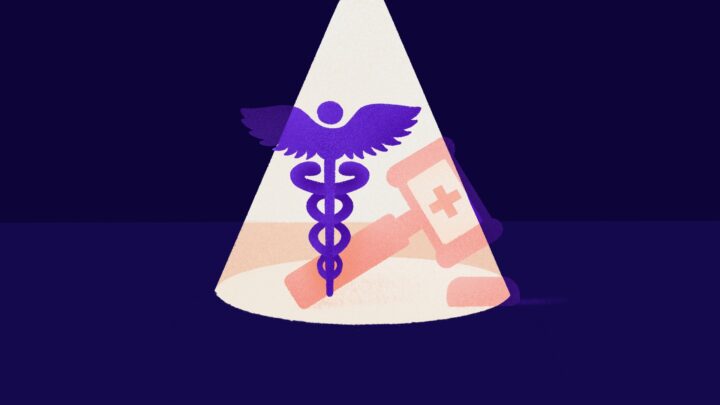
In this article
- The health importance of physician surveys
- Medical advocacy from survey respondents
- Improving the quality of cancer care with a paid medical survey
- Improving health outcomes of cancer patients
- Enable decision-makers to identify prevalent views of oncologists regarding cancer care issues
- Earn extra income for each oncology survey
- Common ways of conducting physician surveys
- So are paid physician surveys worth it for oncologists?
Innovative technology solutions such as CRISPR and artificial intelligence (AI) are changing the approach to cancer diagnosis and treatment. Pharmaceutical and medical device companies that produce new oncology drugs and medical products benefit from physician feedback.
Physician surveys are one of the primary ways some healthcare companies get prompt feedback from health care stakeholders. Drug and medical equipment companies evaluate and use expert opinions from these physician surveys to revise and update their products and services.
Besides pharmaceutical and medical equipment companies, are physician surveys beneficial to oncologists?
In this article, you will learn more about physician surveys, the health impact, and how oncologists can leverage surveys to improve cancer care, the overall health system and earn more money.
The health importance of physician surveys
Oncologists can use paid online surveys as a medium to express profound concerns about cancer care and make recommendations. The 2017 Sermo survey1 on conversations between physicians and patients revealed that 92% of doctors felt comfortable recommending that patients lose weight. If you recognize medical surveys as a tool, it has enormous benefits for you and your patients. Here are some of the key rewards.

Medical advocacy from survey respondents
Oncologists can leverage physician surveys to express their opinions about patient experiences and other health system concerns in cancer care. Some patients experience obstacles in accessing and financing cancer treatment.
Also, some health care delivery systems may have delays in booking appointments and difficulty accessing oncologists. A few of these patients may interact and express their pains about the health care system to their oncologists. This direct contact with patients provides you with first-hand information about prevailing problems related to cancer care.
Your expert opinion on paid surveys regarding negative patient experiences and cancer management issues is essential. Your insights may influence health policy and clinical decision-makers to adjust health policies. A positive patient experience typically improves the quality of life and the patient’s attitude towards a cancer diagnosis.
Improving the quality of cancer care with a paid medical survey
Oncologists play a crucial role in improving cancer care quality by sharing their opinions on new cancer drugs and medical devices. Oncologists typically use research-proven medical devices and new drugs to diagnose and treat cancer patients.
During the clinical management and treatment monitoring phases, patients’ feedback, clinical results, and response to treatment provide oncologists with comprehensive insights about the new drug or medical device. This valuable information aids the healthcare industry, device companies, pharmaceutical companies, market research companies and other healthcare professionals, and medical survey companies.
With physician surveys, you can make your comments to the right health authorities seamlessly. Also, you can provide detailed information and make recommendations for improving the quality of new cancer care solutions.

Improving health outcomes of cancer patients
The survival rate is a crucial statistic for measuring the health outcomes of oncology patients. Over the years, the cancer survival rate has improved. According to the Center for Disease control2, cancer death rates have dropped by 27%, from 196.5 to 144.1 deaths per 100,000 population in the last 20 years (between 2001-2020).
Oncologists play essential roles in improving the cancer survival rate by using physician surveys to:
- Promote improved patient access to cancer care information, the latest medical developments and treatment options.
- Influence health policymakers by updating them with patient experiences.
Enable decision-makers to identify prevalent views of oncologists regarding cancer care issues
Oncologists often have diverse opinions or views regarding cancer care. Physician surveys serve as a platform to gain valuable insights into oncologists’ prevalent views.
For example, a study conducted at the University of Massachusetts-Boston3 revealed different practices and attitudes of oncologists towards medical marijuana. The survey showed that only 30% of oncologists were adequately informed to make recommendations on medical marijuana. Also, 80% discussed medical marijuana with patients, and 46% recommended it clinically as a helpful adjunct to standard pain management.
Similarly, oncologists may have different views and approaches to discussing cancer treatment financing with patients. A 2016 pilot survey4 published in the American Society of Clinical Oncology journal revealed various oncologists’ views on discussing chemotherapy costs with patients. The researchers surveyed 530 respondents. The medical survey revealed the following:
- Regarding the oncologist’s knowledge of patients’ financial well-being: 15% knew about patients’ financial well- all of the time, 39% most of the time, 33% some of the time, and 13% none.
- Regarding oncologists’ attitudes toward discussing chemotherapy costs with patients: 42% discussed most of the time, 32% sometimes did, and 26% never did.
These studies reveal disparities in the knowledge, attitude, and practices among oncologists. Medical surveys like these empower health policymakers with specific quantitative data to make clinical decisions affecting cancer treatment, providers and patients.

Earn extra income for each oncology survey
Physician surveys provide great opportunities for medical professionals such as oncologists to earn supplemental income. You receive compensation for your knowledge, experience, and expertise on a specific topic. For example, oncologists who are active Sermo members and participate in our regular medical surveys earned an average of $3,200+ in extra income in 2021. Our recent survey of Sermo members showed that 39% complete quality physician surveys on a weekly basis, and 7% complete theirs daily5.
A 2022 Sermo survey of 773 physicians6 in our community revealed that 57% complete physician surveys in less than 20 minutes. This indicates you can complete these surveys within a short time and anywhere you are located.
Common ways of conducting physician surveys
Researchers conduct Physician surveys in numerous ways. The following are common ways of executing online market research and medical surveys:
- Questionnaires: Researchers may use paper or online survey forms containing specific open-ended questions to collect data. Scientists can collect both qualitative and quantitative data using this method.
- Interviews: It involves collecting data directly using one-on-one interview questions.
- Groups: Researchers use this method to gather information from individuals with similar interests but different opinions. Research scientists use this method to clearly differentiate the opinions of members in a group.
Want to learn more about paid physician surveys? See our complete guide here.
Frequently asked questions about paid survey opportunities
What is the best paid medical surveys site?
Sermo provides Oncologists an easy to use survey platform to collaborate with other healthcare professionals, contribute to meaningful medical research, and stay up to date in your field. You will also get access to top paid medical surveys, interviews and exclusive career resources.
What is the verification process and payment process for paid medical survey sites?
For the top paid medical survey sites, health professionals must verify their credentials. Then upon survey completion they can choose among digital payment tools to nearly get paid instantly. With Sermo, medical professionals can choose from Paypal, bank direct deposit, Amazon gift cards and other options, from the convenience of your mobile device or computer.
Who can participate in medical online surveys?
Many healthcare professionals qualify for paid survey opportunities. This includes physicians, physician assistants, registered nurses, dental hygienists, nurse practitioners, and many other healthcare providers. Depending on the survey site, you can earn extra cash while impacting the everyday lives of patients globally through engaging surveys.
So are paid physician surveys worth it for oncologists?
Apart from the financial benefit of taking physician surveys, your contribution provides a lasting benefit of having your expert opinion help change the direction of medicine. This is an important reason why many oncologists are so willing to provide feedback.
Physician surveys provide benefits to patients and oncologists. When you express your specialist opinions on physician surveys, you influence the decisions of health regulators and policymakers. Also, pharmaceutical and medical equipment companies improve their medical products using your expert recommendations.
Consequently, this improves patient experience and clinical outcomes. When you participate in paid physician surveys, you contribute toward making a difference in the oncology community around you and the world.
To start completing quality physician surveys, join Sermo today. Sermo provides access to an online community of physicians and a collection of trusted paid physician surveys. Plus, get access to career resources, networking opportunities and more.





